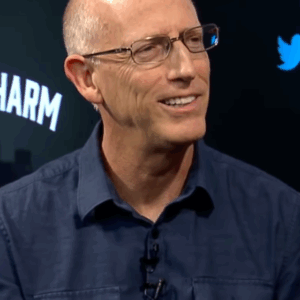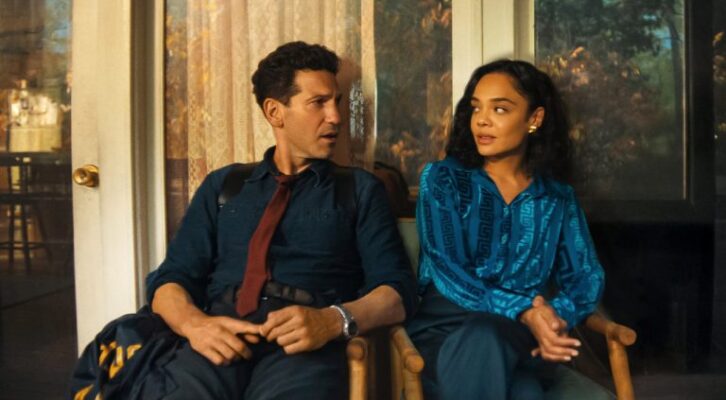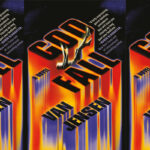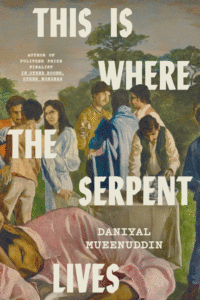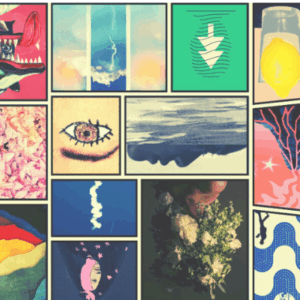
How I Learned To Stop Worrying and Empty My Shelves
Alana Massey on Books as Lifestyle Objects and Thinning Out Her Collection
In the process of searching for a home to buy in upstate New York, I occasionally share links and photos of particularly attractive properties on Twitter and through texts. I enjoy the ritual of communally marveling at their rustic allure and remarkable affordability compared to New York City as much as I enjoy the daydreams I have of living in them. But after sharing a link to a spacious and well-appointed cabin recently, several replies to it gave me pause. One friend texted, “Those bookshelves” accompanied by three heart-eyes emojis, a signal of deep attraction if there ever was one. People I’ve never met on Twitter also noted the abundance and splendor of shelves they had decided were most certainly for books. My books. I looked back over the property photos one by one, counting the stacked horizontal surfaces that could technically house porcelain pigs or framed photos as easily as they could books. But there was no mistaking the intention of the built-in shelves that lined the interior of the house to do anything but shelter and display books. And I would not have nearly enough books to fill their tome-hungry caverns.
If my childhood self could see the sparseness of my bookshelves today, she would be deeply disappointed. I was not just an owner of books, I was a collector, a connoisseur, and a curator. I dutifully purchased each new book in serials like The Babysitter’s Club, Goosebumps, and Sweet Valley High and placed them in chronological order on a ceiling-high bookcase dense with dragons, historical figures, and a small army of precocious and occasionally heroic fictional girls all coming of age at once. I kept the Chronicles of Narnia and Lord of the Rings books in a neat line on the center shelf where the vintage font of the titles appeared on yellowing spines to quietly announce their inherited status to my visitors. They signaled that book ownership was a family tradition. Despite our family living off a single military salary, our hallways and living room were home to imposing mahogany bookcases that would have been more at home in grand estates than our suburban tract house.
In my early adulthood, I continued this tradition by stuffing my shelves with the entire collected works of favorite authors like Flannery O’Connor and Cormac McCarthy. They lived alongside the exorbitantly priced academic texts I was required to purchase as a history major in college and later in graduate school studying religion. I rarely relinquished these books to resellers at semester’s end because I either found the resale value too low, or more often, I believed I would have occasion to return to these texts. A trivial matter like having never needed a pitch-perfect theological reference in work or in casual conversation in the past would not stop me from saving them for the possible future.
My bookshelves came to double as trophy cases, each book a piece of literary taxidermy that I had slayed.
Now in my early thirties, I have allowed the collection to dwindle and secretly want to cull it even further. During bursts of energy to reduce my inventory of possessions, my books are liberated from my apartment more liberally than any other type of possession. I came to feel that my large personal library was holding knowledge captive, the intellectual and creative muscle that went into each book atrophying under the weight of my negligence. My bookshelves came to double as trophy cases, each book a piece of literary taxidermy that I had slayed. I have downsized from a six-and-half foot tall seven-shelf case, three shelves atop a desk, and two mid-sized cardboard boxes in storage, all of them bursting at the seams, to three shelves populated sparsely enough for the books to sway easily from side to side as I pull them out or slide them back in. I have rehoused a huge swath of paperbacks to programs that give books to prisoners. I have turned frequently to e-books. I have loaned books to friends and never inquired again about their well being.
To be clear, this is not an argument for minimalism or a reheated Western misinterpretation about suffering’s correlation to attachment. There is far too much splendid trash available for purchase in this wild and precious life for me to ever make a sincere argument for that. I understand that objects have emotional and nostalgic value. I believe we can enjoy and even love our things. I simply do not see anything particular or exceptional about books as vessels of personal memory and knowledge. I view my books instead as holding potential for communal memory and knowledge. Beyond the sentiment that books are to be shared is a practical impulse to not let them go stale. With the exception of instant classics or books that reach directly into our hearts and must be kept, books have expiration dates. They arrive in our lives with more urgency than we are likely to honor. Political stories that are still unfolding, social science texts that grow obsolete with the publication of new research, and fiction that captures a fleeting zeitgeist that we explain as, “very now” at publication but that is almost quaint in its antiquity by the end of the year. And so the first impulse after reading a book that moves me is to give it to someone I believe will benefit from it, before it is too late.
And yet I cringe when new visitors peruse my meager collection, sometimes wedging myself between my guest and my books to protect them from judgment. I have agonized over the heavy absences of literary heavyweights. I am too embarrassed to even list them here for fear that I inaccurately understand the acceptable list. I have blushed at the preponderance of celebrity memoirs and what feels like an excessive and predictable amount of Joan Didion. More than once I have had a guest pull out my copy of Reading Sucks: The Collected Works of Beavis and Butt-head, hold it up for me to see, and raise an eyebrow in anticipation of a reasonable but amusing explanation. “I love the friend who gave it to me and think it’s the funniest show that’s ever been on television,” I might say, just barely stopping myself from defensively shrieking, “And by the way, I’ve only read Foucault on a compulsory basis and have read absolutely no Dostoevsky. Are we going to have a problem!?”
I regularly encounter the idea, both explicitly and implicitly, that a large personal library indicates far more than a disposition toward collecting and displaying books. Bookshelves double as lifestyle objects, visual shorthand for a certain intellectually oriented way of being in the world that all should aspire to and that writers especially ought to adopt. Owning books from an unwritten list of acceptable and admirable texts is not just a signal of one’s literary interests but of their values, their character, and even their erotic potential. The director John Waters is frequently credited with the warning, “If you go home with somebody, and they don’t have books, don’t fuck ’em!” Physical evidence of a love of reading is seen as a moral good. To be bookish is to have an elevated understanding of the universe itself, a special deal with what we might have called the holy in another time.
While calling something a “lifestyle object” can run the risk of appearing to disparage it as frivolous or somehow inauthentic, I disagree. Everything from an Amazon Echo to a religious symbol worn around the neck can be seen as a lifestyle object: a material thing that signals a more significant meaning about the life of its owner than its exclusively decorative or functional purpose. That is to say, I do not believe that people with massive personal libraries are trying to trick themselves or their guests into believing they’re better read than they are. I mean only that the presence of books signals something about their values as they see them in themselves and how they want them projected. My friend Brandy recently confided that she got rid of three- to four-hundred books in the process of moving, including nearly a whole shelf she had devoted to French theory. “I was like, ‘How are people going to know I’m a sophisticated thinker?’ Even though anyone who is in my home has likely, you know, talked to me enough to know that,” she says, joking about the absurdity of it. “But I still felt like, ‘I need these to make sure they know.’”
I do not believe that people with massive personal libraries are trying to trick themselves or their guests into believing they’re better read than they are. I mean only that the presence of books signals something about their values as they see them in themselves and how they want them projected.
“My library is an archive of longings,” wrote Susan Sontag in her notebook. Like many of her notes in this format, the thought ends abruptly and without elaboration. We are left to wonder what longings in particular she meant and to retrofit her words with our own meanings. My library too has often been an archive of longings. There was a time when I purchased and read books at the behest of those who have insisted that one who reads simply must read this. You do want to be one who reads, don’t you? Beyond wanting to have the right books, my lack of attachment to books makes me nervous that I am not as bookish as I have thought myself. “Reading a book, and recommending a book, is an experience of renewal. Every time is different; every line, no matter how familiar, can exist only in that moment of reading, and the subsequent rereads are like a membership for your own memories,” wrote Haley Mlotek in a compelling essay in Lenny. It was a beautiful reflection on the life stages of books but one to which I could not relate because I have not once reread a book in its entirety.
I asked writers about their relationships to their personal libraries to glean what I could of the self-making properties of these collections. Urban fantasy author Daniel José Older recently tweeted about his appreciation of e-books as both a practical and environmentally friendly alternative to hard copies. Older told me that, despite poking good-natured fun at those who wax poetic about hard copies of books, he loves books too and would miss having the large collection that he and his wife do have if it were to disappear. But he is less concerned about what books are contained within. “I think, at some point, I rid myself of the notion that there are books I should have read,” says Older. “I’m not going to sit here and measure my literary canon dick with somebody else. I read great books and they made me the writer I am.”
Haley Mlotek says that her book collection is first and foremost, about her own love of books. “I’ve always wanted a library that I could show off, sure… but I’m the one who likes looking at it, likes thinking about the books I have read and the books I haven’t and having them within arms reach no matter what apartment or sublet or space I’m in,” Mlotek says. “More than my clothes or my dishes, my books feel like they can be the most consistent part of what makes my apartment my home.” Because she dropped out of college early, her book collection has come “to represent the learning I’ve just done or am yet to do.” In this way, books function as a promise to herself and stand in a sort of defiance to the idea that universities are the only tools by which we can acquire an education.
Writer Kyle Chayka tells me that the most important books in his life are on a shelf in his room, away from most visitors’ views but prominent in his own. “Looking at them, not even reading them, is a kind of meditation, I think, and a reminder of what the books mean to you, or what arguments they’re making. So displaying them is a continuation of a kind of intellectual dialogue,” says Chayka.
From speaking with these writers and more, I understand that this knowledge signaling that books perform is not inherently a sign of ego. There can be something vulnerable and communal in displaying your books. James Baldwin said, “You think your pain and your heartbreak are unprecedented in the history of the world, but then you read. It was books that taught me that the things that tormented me most were the very things that connected me with all the people who were alive, or who had ever been alive.” To come into a stranger’s home and see a beloved book on their shelf creates the bond of a shared memory. “You and I have traveled to the same places and with the same friends,” it tells us. “We were pursued by the same enemy and we emerged alive.” I do not begrudge anyone the desire to keep their books as vessels of memory and potential connection with others, conversation pieces more ripe for discussion than a coffee table or an antique lamp. I’d simply rather have my books released back into the world to multiply the experience, to give more people the opportunity to emerge alive on the other end of them as I once did.
Books have influenced my life immeasurably. They have expanded the breadth of my knowledge and unlocked possibilities in my moral imagination. Literature has taught me new ways to touch and taste the world. It has offered artful instruction in the countless ways to fight and to love, how to accept the world’s gifts and how to resist its dangers. I have learned my native tongue anew hundreds of times over and become friendly, if not entirely familiar, with dozens more. Most of the books that mattered to me are absent from my bookcase, but their fingerprints cover every inch of my heart and skin. Their subconscious influences slide off my tongue and warm me down to the marrow, wherever they currently live. My books took me on countless adventures of the imagination and the intellect. They granted me access to lives and landscapes I could scarcely imagine without their guidance. Now I want to return the favor.
Alana Massey
Alana Massey is the author of All the Lives I Want, an essay collection exploring the intersection of the personal with pop culture through the lives of iconic women from music, literature, and film. Her writing on identity, culture, vice, and virtue has appeared in/on publications like NPR, NYMag, The Atlantic, The Guardian, The New Republic, The New Inquiry, BuzzFeed, VICE, and more. She enjoys books, champagne, cats, glitter, and money.









